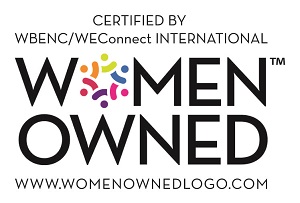Stay Ahead of the Trends and Find A Niche in Marketing
Published onAre you looking to capture a niche market with buying power? The American Institute for Research (AIR) reports that after taxes, the largest minority group in the United States is Americans with disabilities. This group makes up $490 billion of disposable income. Of course the best way to reach this population is to make access to goods, services, and information a priority.
By providing documents in Braille, Large Print, Audio, and by following WCAG standards for digital accessibility, your business can tap into this growing marketplace.
Doing the right thing will bring new customers
People with disabilities shop, work, attend school, pay bills, travel, dine-out, have families and friends, are independent, and yet they are still overlooked. And, because the population is often underestimated, their needs are not being met. Forbes has taken note, reporting that people with disabilities are an overlooked and growing market.
The Americans With Disabilities Act (ADA) requires businesses to provide equal access. Obtaining this human right is often a struggle. So, when a company willingly provides access, they get noticed and not just by people with disabilities. The families, friends, and colleagues of those with disabilities also understand the importance of providing accommodations for independence.
Keep it simple!
Harvard Business Review advises that consumers are happiest when businesses keep it simple. This is where most businesses go wrong in reaching people with ADA needs. There are always added steps when a person needs accessible materials. These steps are barriers to receiving accessible materials, or worse, businesses don’t offer them at all. Consumers will quickly abandon your site for a site that provides materials they can use. Consider offering accessibility as part of every step in connecting with clients. For example, your on-hold message could say, “Did you know that you can receive your statements in braille, large print, audio, or as an accessible PDF?”
Ethical consumerism generates business and ends business
Billions of marketing dollars are spent each year targeting a shrinking demographic; people with decent eyesight. The American Optometric Association reports that approximately 78% of adults between the ages of 40-60 will experience significant vision changes. This will soon make up almost half of the US population. These changes in vision make reading printed material on paper and screens more difficult.
Make accessibility part of your marketing strategy and customer service training. Simply letting the public know that accessibility is a priority, and that all materials can be obtained in an alternative format, makes your organization appealing to all people.
People want to feel good when purchasing goods and services from a company. ADA accessibility is something that many people care about because it gives equality to all people, of all races, all genders, and all origins. Take the lead and make ADA accessibility a priority.
“Character is like a tree and reputation like its shadow. The shadow is what we think of it; the tree is the real thing.”—Abraham Lincoln
When it comes to marketing be proactive
Do you want to be known as an organization that has a culture of meeting the needs of all customers? When you provide accessible website, apps, and documents you capture and market to all people. Bringing ADA accessibility to the forefront of your organization is a proactive measure in meeting the needs of an overlooked market.
Many organizations adopt ADA accessibility as a form of damage control, this is known as critical marketing. A customer files a complaint or lawsuit based on discrimination, and the business scrambles to contain the damage.
Social media and 24-hour news cycle often fuel the court of public opinion. If a complaint were filed, imagine the difference proactive marketing about your accessibility efforts would make. You could simply point to the efforts your company already makes to include everyone.
Additional Resources:
Categorized in: Accessibility, Informational
This post was written by







Comments are closed here.